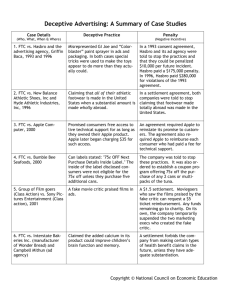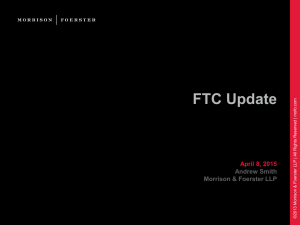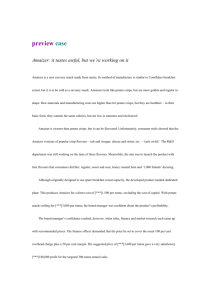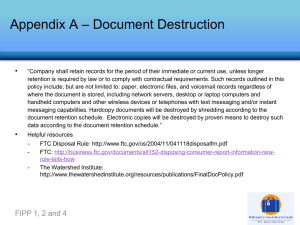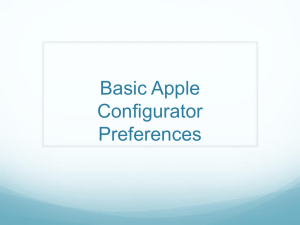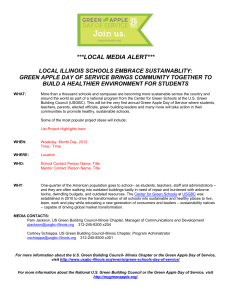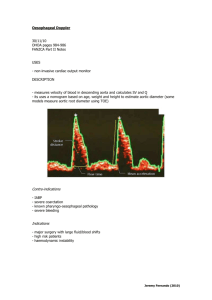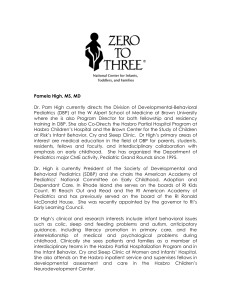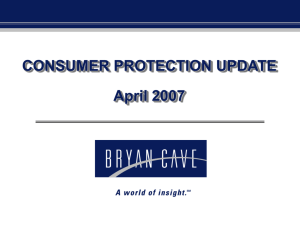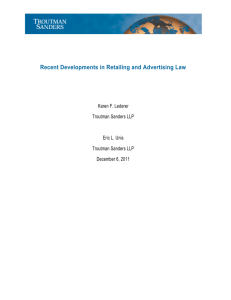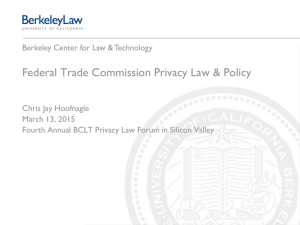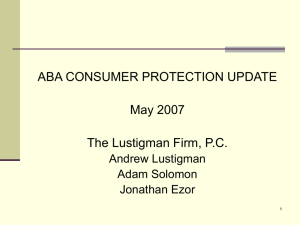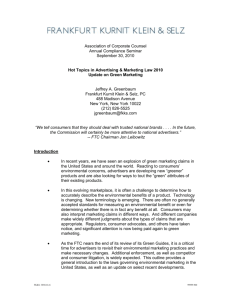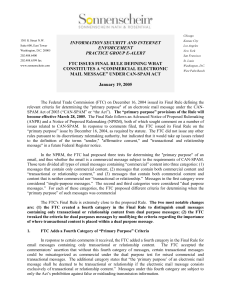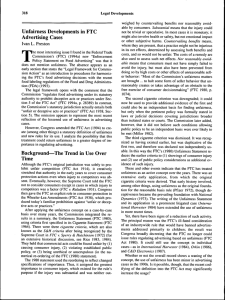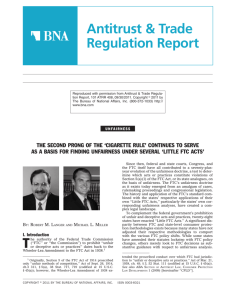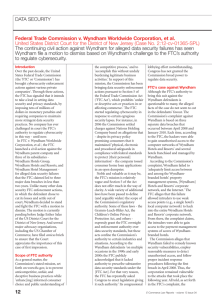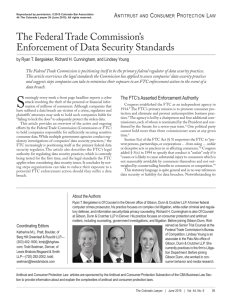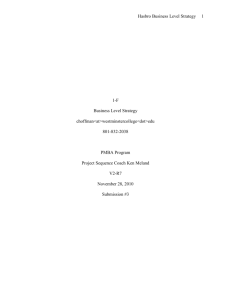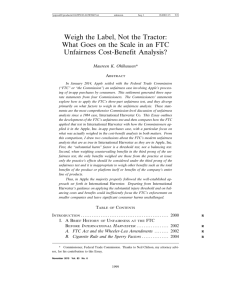Deceptive Advertising: A Summary of Case Studies
advertisement
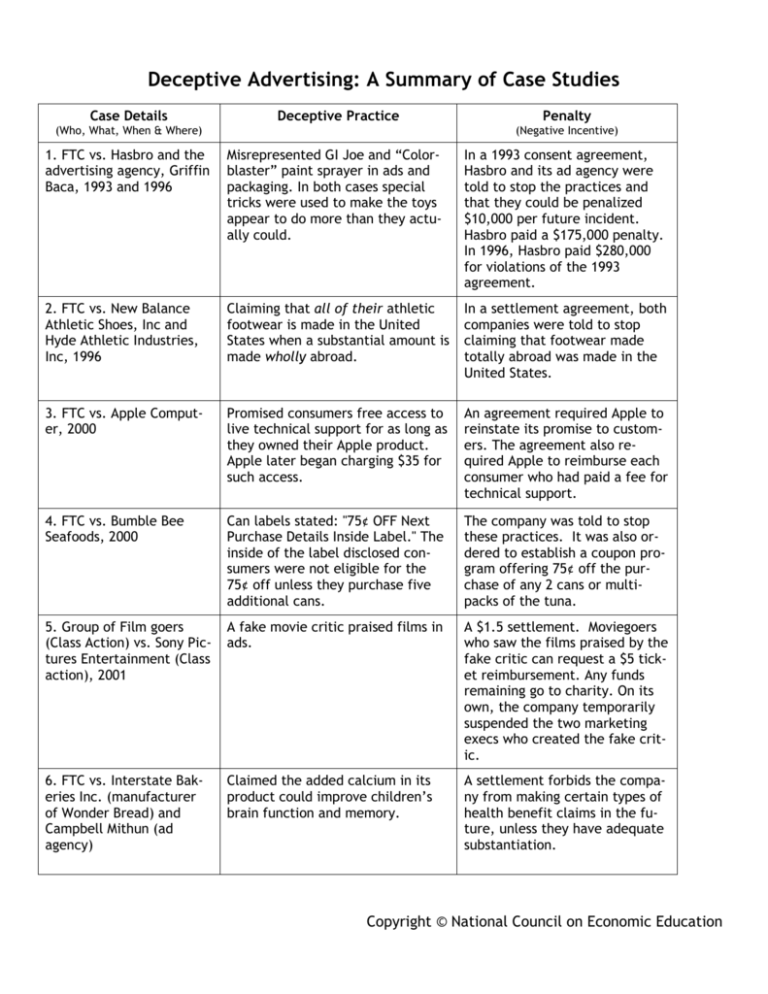
Deceptive Advertising: A Summary of Case Studies Case Details Deceptive Practice (Who, What, When & Where) Penalty (Negative Incentive) 1. FTC vs. Hasbro and the advertising agency, Griffin Baca, 1993 and 1996 Misrepresented GI Joe and “Colorblaster” paint sprayer in ads and packaging. In both cases special tricks were used to make the toys appear to do more than they actually could. In a 1993 consent agreement, Hasbro and its ad agency were told to stop the practices and that they could be penalized $10,000 per future incident. Hasbro paid a $175,000 penalty. In 1996, Hasbro paid $280,000 for violations of the 1993 agreement. 2. FTC vs. New Balance Athletic Shoes, Inc and Hyde Athletic Industries, Inc, 1996 Claiming that all of their athletic footwear is made in the United States when a substantial amount is made wholly abroad. In a settlement agreement, both companies were told to stop claiming that footwear made totally abroad was made in the United States. 3. FTC vs. Apple Computer, 2000 Promised consumers free access to live technical support for as long as they owned their Apple product. Apple later began charging $35 for such access. An agreement required Apple to reinstate its promise to customers. The agreement also required Apple to reimburse each consumer who had paid a fee for technical support. 4. FTC vs. Bumble Bee Seafoods, 2000 Can labels stated: "75¢ OFF Next Purchase Details Inside Label." The inside of the label disclosed consumers were not eligible for the 75¢ off unless they purchase five additional cans. The company was told to stop these practices. It was also ordered to establish a coupon program offering 75¢ off the purchase of any 2 cans or multipacks of the tuna. 5. Group of Film goers (Class Action) vs. Sony Pictures Entertainment (Class action), 2001 A fake movie critic praised films in ads. A $1.5 settlement. Moviegoers who saw the films praised by the fake critic can request a $5 ticket reimbursement. Any funds remaining go to charity. On its own, the company temporarily suspended the two marketing execs who created the fake critic. 6. FTC vs. Interstate Bakeries Inc. (manufacturer of Wonder Bread) and Campbell Mithun (ad agency) Claimed the added calcium in its product could improve children’s brain function and memory. A settlement forbids the company from making certain types of health benefit claims in the future, unless they have adequate substantiation. Copyright © National Council on Economic Education 7. FTC vs. Exxon, 2003 Claimed its Supreme gasoline makes engines cleaner and reduces auto maintenance costs. The company was told to stop making the unsubstantiated claims. 8. 47 states vs. Blockbuster, 2005 Promoted a 'No More Late Fees' policy but charged a restocking fee after one week. If the video or game was kept for more than 30 days, the consumer was charged the retail value of the item. Company must 1) post notice in stores telling customers the conditions of the program 2) refund or credit customers for items purchased and 3) pay $630,000 to states to reimburse them for expenses of litigation. 9. NAD Forum: GeorgiaPacific Corporation (manufacturer of Brawny Paper Towels) vs. Procter and Gamble (maker of Bounty Paper Towels), 2005 A P&G ad showed a side-by-side, wipe-and-tear demonstration portraying Bounty’s wet-strength advantage. The ad showed what would happen in a lab vs. consumer use. Though P&G disagreed with NAD’s conclusion, it has agreed to comply with NAD's recommendation in future advertising. 10. NAD Forum: Procter & Gamble Company (maker of Pringles® Original Potato Crisps) vs. PepsiCo/Frito-Lay, Inc. (maker of Lay’s Stax® Original Potato Crisps), 2005 Frito-Lay claimed “America prefers the taste of Lay’s Stax® Original Potato Crisps over Pringles® Original Potato Crisps.” No penalty. An independent double-blind test provided a reasonable basis for its claim. 11. CARU Forum: McDonalds, 2005 McDonalds did not show all options available as part of its Mighty Kids Meals. McDonalds disagreed with decision but will take the recommendations into consideration in its future advertising. The ad had already completed its on-air rotation. 12. Kyle Gray (individual consumer) and Center for Science in the Public Interest (CSPI) vs. PepsiCo in New Jersey, 2005 Tropicana Peach Papaya drink had no peach juice and no papaya juice. In fact, it had only a very small amount of pear juice with water and corn syrup being the main ingredients. In a settlement, PepsiCo agreed to make some changes to its labels. Also, to 1) pay Gray $2,500, 2) make a $100,000 donation to the American Heart Association and 3) provide an additional $50,000 for legal expenses fees of those who filed the suit. Copyright © National Council on Economic Education
